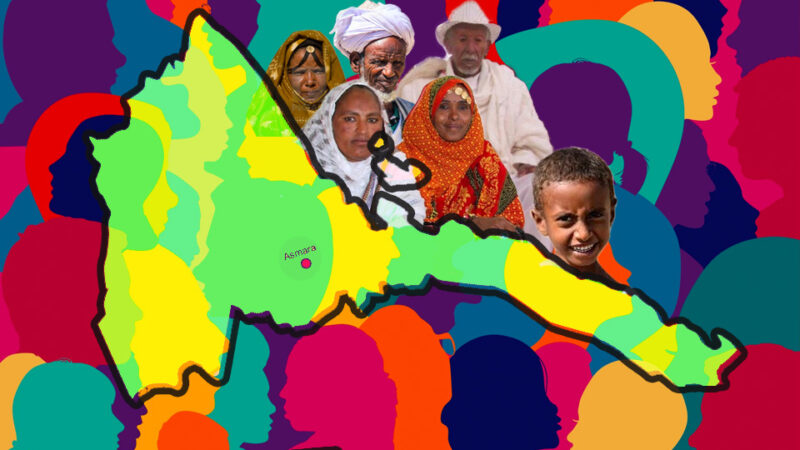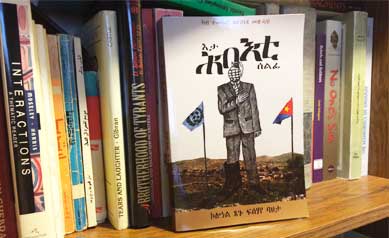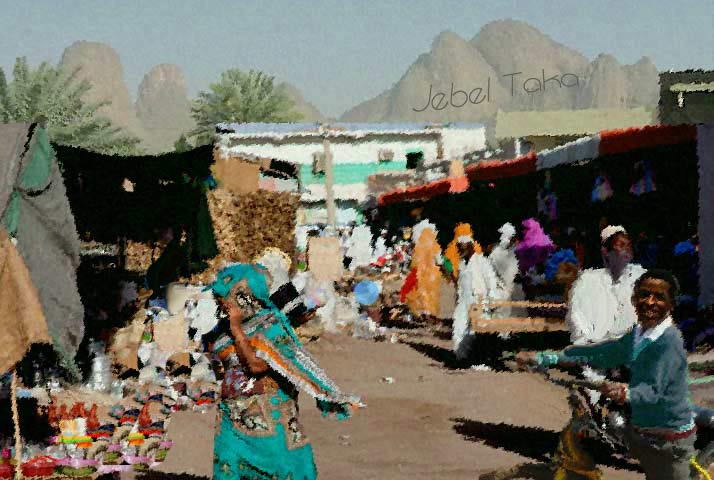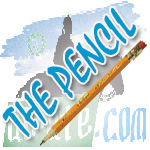Critical Thinking and Critical Dialogue in A Plural Society like Eritrea

Critical Thinking and Critical Dialogue in A Plural Society like Eritrea
Call it serendipity or call it a delightful coincidence, right at the time when the discussion at Awate.com is revolving around discourse and its discursive elements, dialogue and its attendant tentacles, there comes a presenter who seems to be telling us to consider something basic before trying to gallop forward, to consider the basic tenets of dialogue, namely, “Critical Thinking”. For example, the speaker offers four steps that are indispensable to critical thinking: “(1) Collect Information. (2) Evaluate Information. (3) Draw Conclusion (Using Logic). (4) Evaluate Conclusion” (For further elucidation, see the link under references).
Obviously, where there is no information shared, no information will be dispensed, no conclusion to be drawn. So came and went many symposiums and so will come and go many more without any discernible impact to be made palpable. This begs the question why very little impact with all the various conferences, speeches, presentations, and symposiums from the opposition camp? This article will grapple with the question posed using ideas of critical thinking as enumerated above, discerning among dialogue, discussion, and debate. Going to the root of when we first were socialized will be of monumental import.
In “The Cycle of Socialization”, Harro (2010) insightfully captures how the way “we have been socialized” influences [us] in the shaping of our individual, social, and political identities. Harro encourages readers to “make a personal inventory of our various social identities relating to the [various] categories…The results of this inventory make up the mosaic of social identities (our social identity profile) that shape(s) our socialization” (Harro 1986, Griffin 1997).
In the introduction of “Native Colonialism”, Yirga Belaw Woldeyes (2017) makes it abundantly clear that “Ethiopia has never been colonized by an alien political power, but a political system similar to colonialism has been institutionalized in the country by native colonizers. The western political ideology of the elite class has become the source of economic, political, and social policy. Political parties determine development processes, and modernization is seen as a government-sponsored project rather than an evolutionary process that emerges from people’s local experiences. Education has played a central role for the emergence and expansion of native colonialism. It promotes a worldview and culture that produces colonial consciousness” (p. 3).
Therefore, our socialization within the world in which we live shapes the worldview that we dearly uphold. Awareness of this ought to alert us to the need of questioning our deeply held assumptions on many social and political positions we may have taken as a given. To read the word is to read the world (Friere, 1987) says the man of letters. Through critical discourse, one can find “discursive events” (Jäger, 2001; van Dijk, 1997a, 1997b, 2001) as the meaning we give to certain concepts and ideas begin to acquire meanings that we all can relate to that only dialogue can bring to bear. The discursive events will contain “themes, patterns or strands to thoughts that build upon each other… [which will lead to] epistemological and ideological perspectives, as illuminated through metaphors and meaning, with reference to the context of the grander conversation” (Duncan, pp. 21-22). In her dissertation work, Duncan (2009) further elucidates Freire’s (1970) concepts of dialogue being used as “fundamental to liberation.” For Freire (1970/1973), “our capacity to engage in praxis is what distinguishes our humanity. Praxis for Freire is a “reflection and action upon the world in order to transform it” (p. 28).
Before one can transform a society, however, a person needs to humble himself/herself in working of transforming oneself as Lao Tzo aptly and concisely reminds us thus: “If you want to awaken all of humanity, then awaken all of yourself, if you want to eliminate the suffering in the world, then eliminate all that is dark and negative in yourself. Truly, the greatest gift you have to give is that of your own self-transformation.”
When dialogue emanates from such understanding, it won’t be that difficult to see not only its “dynamic and multi-reflexive process [but also becoming a hope for creating solutions to our current cultural, social, political and environmental contexts.” Of course, such an ambiance also can be extended, say, to “our social communicative constructs, and co-construct mutually shared meaning of our world, individual and collectively, in our families, in our classrooms, in our communities and in our society, locally and globally” (Duncan, pp. 23-24).
Duncan (2009) drives her point home using Benjamin Lee Whorf’s “principle of linguistic relativity in which he claims that our perspective of the world is relative to the grammar of our mother tongue” (p. 24). Therefore, Duncan’s argument is concluded in the assertion that “the seemingly disparate worldviews” (p. 25) could be overcome by our willingness to invent “a new language of thought” (p.25).
Similarly, Eritreans from all walks of life should be able to find a language of mutual understanding instead of this continuously and antagonistically toxic discourse that is seen across all sectors, class, gender, religion, and region. But, of course, Eritreans must be aware and willing to embrace the “model of discourse that Fairclough (1992a) not only “develops [but] frame[s] [it] in a theory of ideological processes in society, for discourse is seen in terms of processes of hegemony [that goes beyond the self-serving hegemonic discourse]. Fairclough (1992) “identifies the multiple ways in which individuals move through such institutionalized discursive regimes, constructing selves, social categories, and social realities. At the same time, the general direction is one in which social theory is used to provide a linguist metadiscourse and in which the target is a refined and more powerful technique of text analysis” (p. 449). Allow me to conclude with the following genuine thought process that would require each one of us to seriously reflect by changing our approach when we enter to discuss issues.
*The goal of DIALOGUE is to listen to and understand the other. I ask myself, “Am I coming to know and understand you better?”
The goal of DEBATE is to defeat the other’s position. I ask myself, “Am I winning this argument?”
The goal of DISCUSSION is to persuade others, usually while avoiding conflict. I ask myself, “Is the other person agreeing with me and liking me?”
https://www.iup.edu/teachingexcellence/files/teaching_resources/diversity_in_the_classroom/dialogue-discussion-debate-1-1.pdf
*The link above has detailed comparisons among the three words. It is only one page, give it a read.
Steering clear from the word debate, for Eritreans who have not internalized the distinction among these three words will continue to be a hindrance. One must firmly believe that dialogue and discourse are the ingredients that help foster dialectics. As such, the philosophical and theoretical underpinnings that one develops ought to comport with notions that should inform the kind of discourses that stem from several sources. Notions of ontology (the nature of our being), epistemology (affirmation of human knowledge), and axiology (value & ethic), all of which can provide us all with a philosophy of life that enriches our humanity. Torres & Reyes (2011) stipulate that “being human is being in relation with others and in dialogue with others to understand the world” (Bakhtin, 1986a; Freire, 1992, cited on pp. 68-69).
Obsessing over technicalities misses the larger points that are in dire need for us to figure out. Consider other types of inquiries that would impart invaluable lessons ranges the gamut: Scholarly Personal Narrative (SPN), Testimonios, Multicultural Critical Analysis (MCA), Critical Media Analysis (CMA), Critical Discourse Analysis (CDA), Ethnographic Inquiry, Praxis & Reflexivity, Research as Praxis (RAP) & Acquiring Emancipatory Discourses, collectively, can bring our unsettled issues into sharp focus. We should see these as nothing more than tools of the trade that we should be able to access to make them applicable to our predicaments in Eritrea. If we can’t appropriate them, subvert them, much as what Woldeyes (2009) is suggesting the Ethiopian educational system does, we will be doomed to keep repeating the same thing we have been doing in the last quarter of a century and with no discernible outcome. It is not that difficult to produce voluminous literary material, but if it is not followed by appropriation and action, it is meaningless ostentation. Personal transformation must by necessity lead to a social process of transformation, and collectively all our educational and lived experiences ought to lead us towards this: To be an empathetic listener and hopefully leaders who would lead by example of kindness, not by brute force.
References
Abdurahman, K. (2023). https://www.youtube.com/watch?v=ZwsQqtHVWjQ
Abdurahman, K. (2023). On Critical Thinking. ERISAT: The Power of One. Retrieved on 7/5/2023 from: https://www.youtube.com/watch?v=ZwsQqtHVWjQ
Harro, B. (2010).Readings in diversity and social justice by Adams, Maurianne. Copyright 2010 by ROUTLEDGE (UK) — BOOKS. Reproduced with permission of ROUTLEDGE (UK) — BOOKS in the format Copy via Copyright Clearance Center.
https://www.nea.org/sites/default/files/2021-02/Cycle%20of%20Socialization%20HARRO.pdf
Woldeyes, Y. G. (2017). Native Colonialism: Education and the Economy of Violence Against Traditions in Ethiopia. Trenton: Red Sea Press.
Freire, P., & Slover, L. (1983). THE IMPORTANCE OF THE ACT OF READING. The Journal of Education, 165(1), 5–11. http://www.jstor.org/stable/42772842
Duncan, S. (2009). DIALOGUE AND SELF: CO-CONSTRUCTING CRITICAL REFLECTIVE CONSCIOUSNESS. (dissertation). Las Cruces, New Mexico State University.




Awate Forum